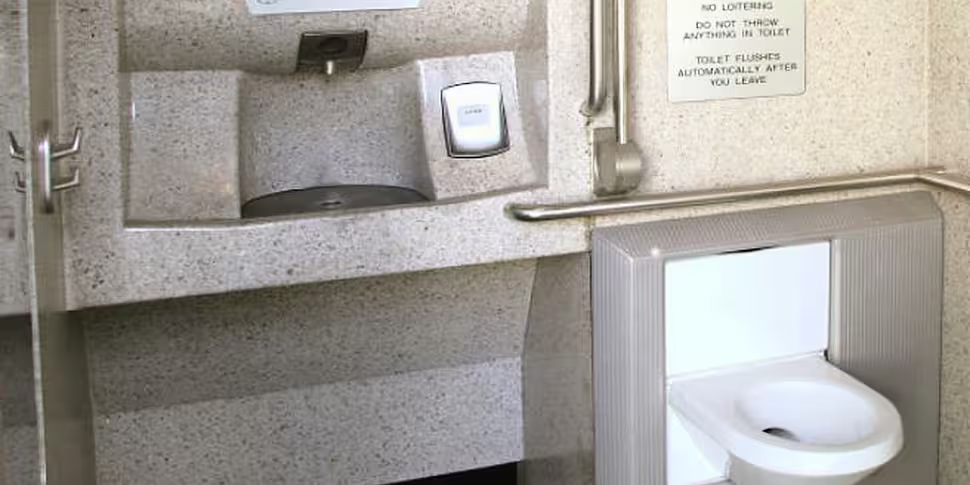It turns out that it is costing Kildare County Council a pretty penny to allow the people of Athy, Kildare, Naas and Newbridge the chance to spend a penny in public places. An oval-shaped automated public toilet located in each of the towns is costing around €37,000 a year, but it is just water flushed down the drain?
The figures were confirmed at a council meeting, where it was revealed a 20-year contract was signed with the French company JCDecaux at a cost of €150,000 annually to maintain the upkeep of the latrines. 15 years into the deal, and the public have emptied nearly €750,000 for each of the bowls, piling up to €3m of council funds.
“The scarcity of money is the a huge issue, no matter what you want to get down in any town,” said independent councillor Willie Crowley, who said he was as shocked as everyone else after hearing the news.
“We’re told there’s a shortage of money, and yet we’re told there’s been an extraordinary amount of money committed to a very limited service.”
Figures show that the public loo in Kildare town is the busiest, with an average 350 using it on a monthly basis. 260 people avail of the Athy one, while Naas and Newbridge average out at 230 each. At 50c a flush, the Council only makes €115.
But it isn’t a simple case of pulling the plug on the toilets, that would cost money too; to break the remaining years on JCDecaux’s contracts would cost the public more than €400,000. Sin Féin councillor Mark Lynch thinks the Council should take the hit, despite having to cough up the money upfront, as it does work out as a saving in the long term. And he also has a suggestion of how to provide public facilities for those in need:
“There has been talk of giving money to a local business or hotel in order to provide a public service for the public toilets,” he said. “I think that’s a much better idea for a nominal fee.”
There are a few council members who maintain that the JCDecaux deal is still the right option; the old-style public toilets that the council abandoned were not without their own problems, requiring cleaning staff, and acting as a magnet for anti-social behaviour. And the public need remains, with the Council required to address that.
But perhaps of greater importance is what outsourced deals like this mean for county councils around the country. Damian Molyneux, a former mayor of Newbridge, thinks it reflects the diminishing power of local government.
“I wonder in the future how long the County Council will actually last,” he said, “What do they actually control anymore? They don’t control the roads, the National Roads Authority does that. The swimming pools, some of our parks... sports centres, our landfills, they’re now all controlled by private companies.”
Councillor Willie Crowley agrees: “The more outsourcing that occurs in various services, the less employment is created and the poorer the service provided.”
“We have demonstrated in our area that local councils can do a better service and a more economical one than by outsourcing it to foreign nationals. So we think it’s of a national dimension to examining these contracts.”
To hear Kieran Cuddihy's report on Newstalk Breakfast, click on the link below:









